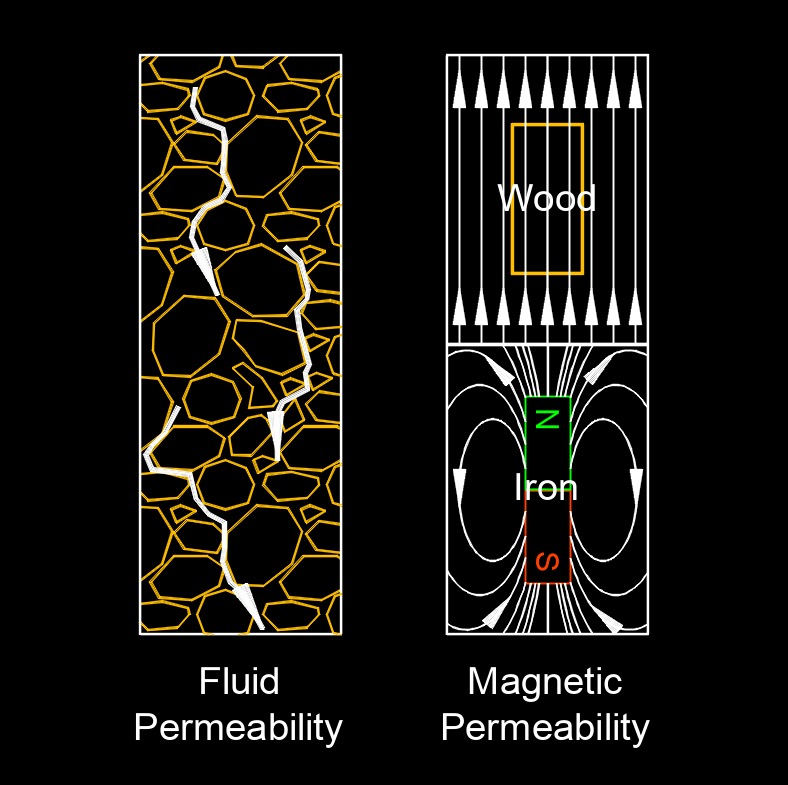Permeability
 Permeability, abbreviated as \( \mu \) (Greek symbol mu), is the property of a material that determines its ability to allow the flow or passage of substances, such as liquids, gases, or electromagnetic fields, through it. It is a measure of how easily a substance can permeate or pass through a given material.
Permeability, abbreviated as \( \mu \) (Greek symbol mu), is the property of a material that determines its ability to allow the flow or passage of substances, such as liquids, gases, or electromagnetic fields, through it. It is a measure of how easily a substance can permeate or pass through a given material.
Magnetic Permeability Units - English (does not have a commonly used or standardized unit), SI (\(H/m\)).
Soil Permeability Units - English (\(ft/sec\)), SI (\(m/s\)).
Permeability has Different Meanings
Magnetic Permeability - This refers to the ability of a material to allow the passage of magnetic lines of force through it. It is a property of materials in the presence of a magnetic field. Materials with high permeability, such as iron or ferrite, allow magnetic fields to pass through them easily, while materials with low permeability, like air or vacuum, offer more resistance to the magnetic field.
Fluid Permeability - In fluid dynamics, permeability refers to the property of a porous medium (such as soil, rock, or membranes) to allow the flow of fluids (liquids or gases) through it. It is a measure of the ease with which a fluid can move through the interconnected void spaces or pores of the medium. Permeability is an important parameter in fields like hydrogeology, petroleum engineering, and filtration systems, as it determines the rate at which fluids can flow through a particular material.
Permeability is a fundamental property that characterizes how substances or fields can penetrate or pass through a material, whether it relates to magnetic fields, electric fields, or fluid flow.

